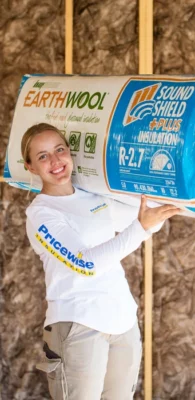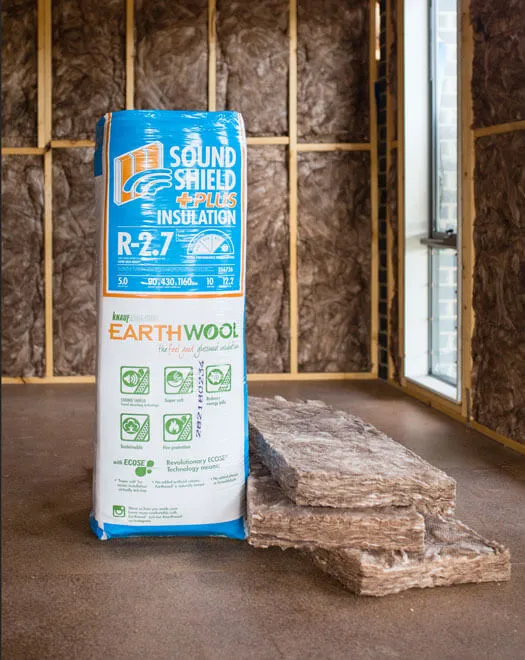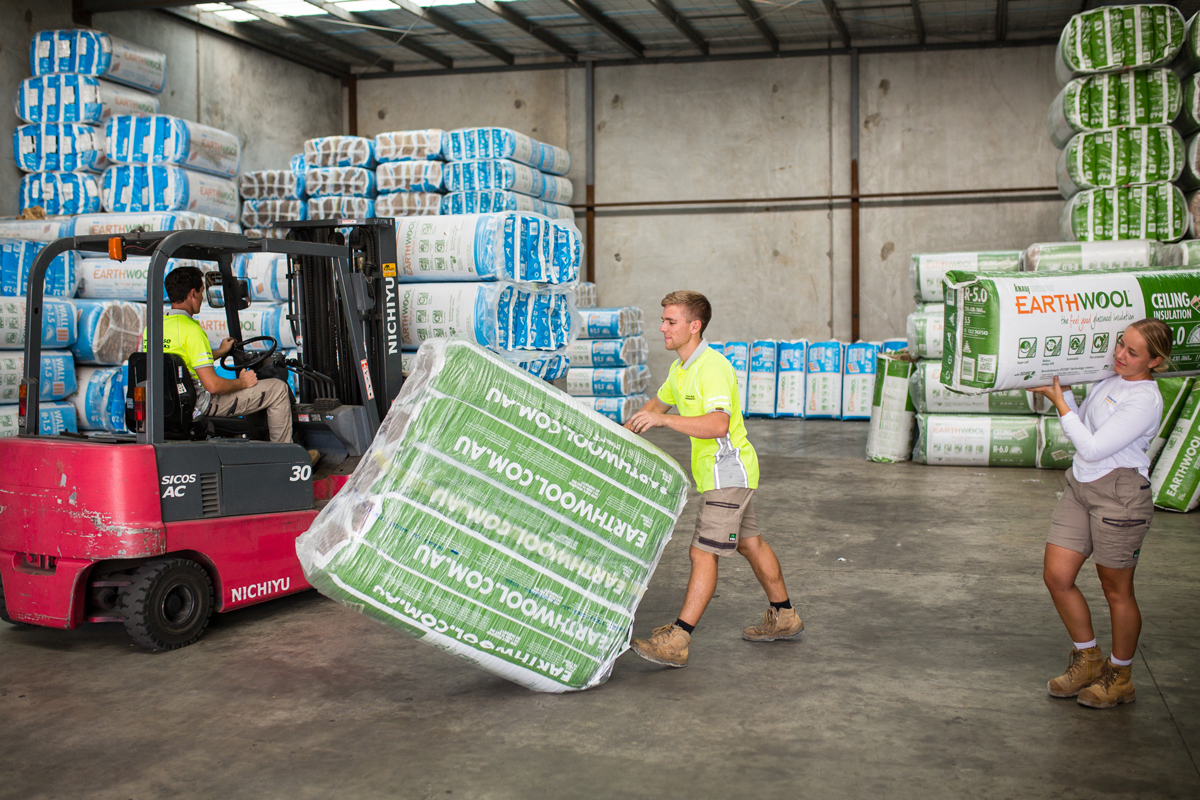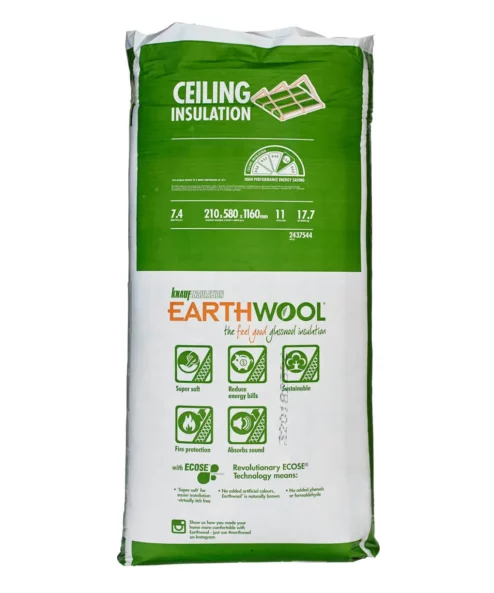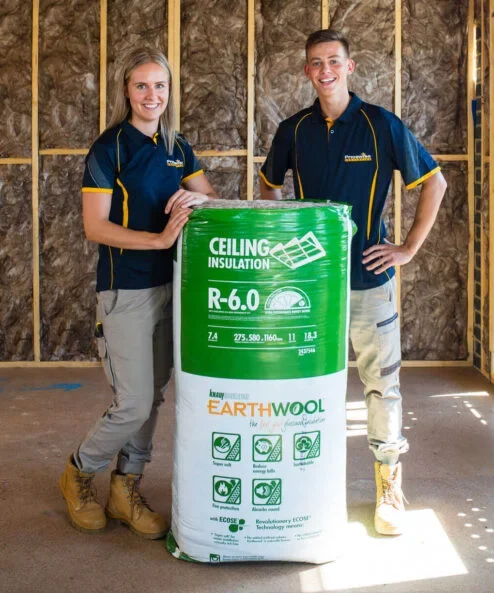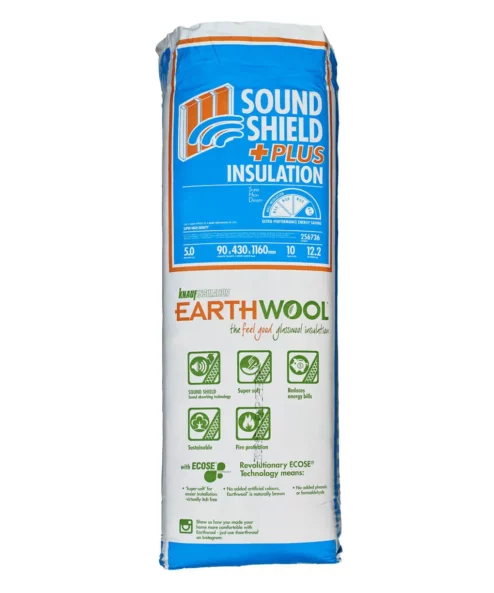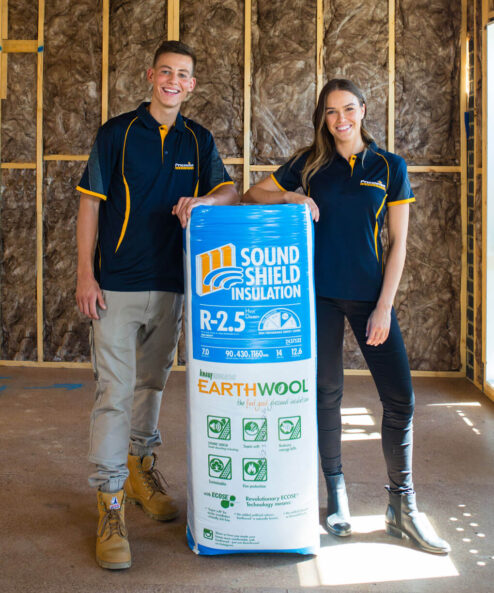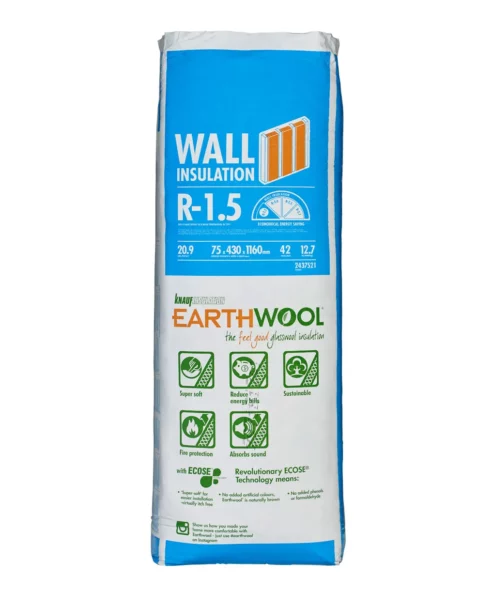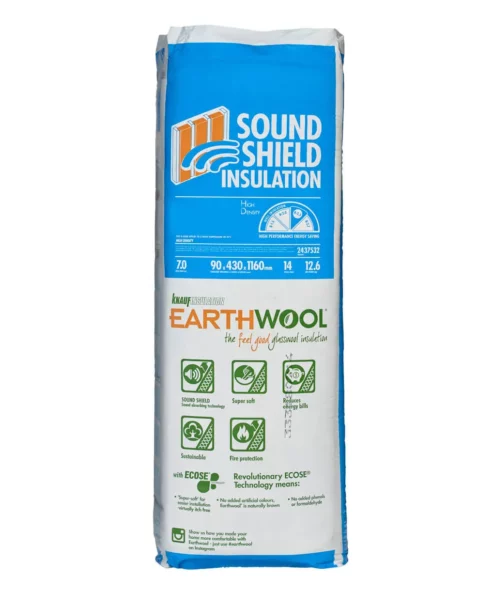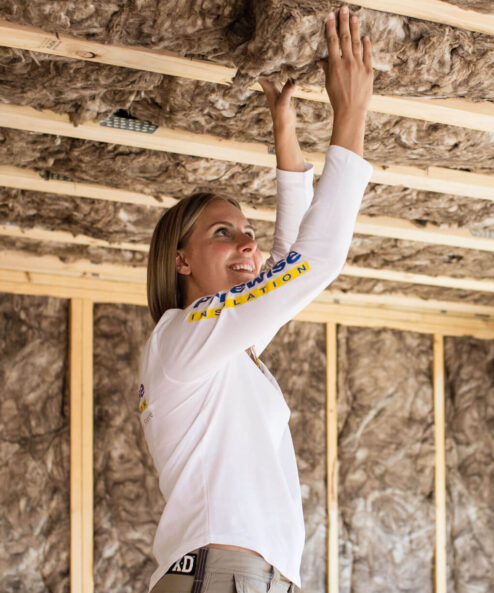Insulation Tips
Everything Earthwool – FAQs and Whether It’s Right for You
Earthwool is a popular type of glasswool insulation used by professional and DIY installers across Australia to improve thermal regulation in homes. If you’re planning on insulating a new or existing home, Earthwool could be a great choice.
In this article, we’ve put together everything you need to know about Earthwool, including:
- What is Earthwool made of?
- What can Earthwool be used for?
- What are the benefits?
- How does Earthwool compare to other insulation types?
- Is Earthwool dangerous?
- Is Earthwool itchy?
- Where to buy Earthwool in Australia
For further information or project specific advice about choosing the right insulation, give the team at Pricewise Insulation a call.
What Is Earthwool Made of?
Earthwool Insulation is a specialised type of glasswool insulation (also known as fibreglass) and is only manufactured by Knauf.
Like other glasswool products, Earthwool Insulation is manufactured from materials such as recycled glass bottles and sand. However, what makes Earthwool different from conventional glasswool products is that it is manufactured with ECOSE Technology.
What Is Ecose Technology?
ECOSE Technology involves using a sustainable bio-based binder to bond fibre strands together. Instead of using harsh chemicals, ECOSE Technology uses only natural raw materials.
This revolutionary technology has no added formaldehyde or phenol, making it much more environmentally friendly and healthier than traditional glasswool insulation. In addition, no artificial colouring is added to Earthwool, so it is a natural brown colour.
Is There Wool in Earthwool?
Knauf Earthwool Insulation is not made from sheep wool. It is manufactured from recycled glass bottles, sand and other materials which are spun into long fibres to create a soft, pillowy product.
What Can Earthwool Be Used for?
Knauf manufactures both thermal and acoustic Earthwool insulation products that can be used throughout the home to improve energy efficiency and reduce sound transfer.
Thermal Insulation
Thermal insulation reduces heat transfer in and out of your home, making it easier to keep your rooms at a comfortable temperature while reducing energy bills. Earthwool thermal insulation can be used in ceilings, walls, under floors and between floors of a multi-storey home.
Acoustic Insulation
Acoustic insulation helps reduce sound transfer between the rooms in your home, and can reduce the amount of noise coming into your home.
Acoustic insulation batts are typically used in external walls, internal walls and between storeys, but they may also be used in the ceiling and underfloor if required. As with the thermal wall batts, Earthwall acoustic wall batts fit in most common sizes of wall frames.
Why Is Earthwool So Popular?
Earthwool has a number of benefits which make it a top choice for both professional and DIY installers. These include:
Excellent Thermal Performance
Earthwool is a high performing thermal insulation which effectively reduces heat loss and gain. In addition to the material being a poor heat conductor, millions of tiny air pockets trapped in the structure of an Earthwool batt help break up the flow of heat, slowing down the rate of transfer.
Earthwool is available in a wide range of R Values from R1.5 to R6.0. For advice about which R Value to choose, read our guide “What does R-Value mean?”.
Soft to Touch
For a long time, glasswool has been associated with itchiness but Earthwool Insulation challenges that. Earthwool is soft to touch and has a very low itch factor due to the longer strands of insulation material. The longer strands means there are fewer strands and fewer ends of the strands which create the itchiness.
Easy to Handle
Earthwool Insulation batts are easy to cut and handle, making them an ideal choice for professional insulation installers as well as those wanting to DIY. Earthwool wall batts are pre-cut to fit the most common sizes of wall spaces used in Australian houses.
Efficient Packaging
Earthwool is highly compressible which means you can get more metres squared from a single package. This makes transporting the packages more convenient and can help save on storage and transport costs.
Non-combustible
Earthwool Insulation is non-combustible, meaning it does not burn if exposed to fire. Instead, it will inhibit the spread of fire and help maintain the structural integrity of the building. This is a highly valuable property, especially in areas of Australia that are seasonally at risk of bushfires. Insulating with a non-combustible insulation may reduce your insurance premiums as well.
Good Sound Absorption
In addition to effective thermal properties, Earthwool batts can provide great acoustic properties. Specialised Sound Shield Earthwool Insulation is designed with extra thickness and density to help prevent sound travelling from room to room, or between indoors and outdoors. Installing sound insulation can help create a peaceful and private indoor environment.
Resistant to Moisture and Vermin
Earthwool insulation is non-hygroscopic, meaning it will not absorb moisture from the atmosphere. It is rot-proof, does not sustain vermin and doesn’t encourage the growth of fungi, mould or bacteria. These properties mean Earthwool Insulation is durable and a healthier choice for your home.
Healthier for You
Earthwool Insulation only uses renewable bio based materials and is free from harsh petroleum-based chemicals and any artificial colours. It is safe for use by DIY installers.
Environmentally Friendly
Earthwool is made from up to 80% recycled material and ECOSE technology produces less emissions during manufacturing than conventional glasswool insulation products. Knauf also has a number of policies in place to reduce water and material waste.
When you install high-quality insulation like Earthwool, you will reduce your dependency on artificial cooling and heating, lowering your household energy consumption. High-quality insulation that is properly installed is an excellent step towards making your home greener.
Highly Durable
Knauf Insulation is highly durable, able to cope with tough Australian conditions and is designed to last the lifetime of your home. It comes with a 50-year warranty.
How Does Earthwool Compare to Other Types of Home Insulation?
It’s important to weigh up your options before insulating your home. We’ve put together some helpful guides so you can compare Earthwool with other popular insulation types.
Find out more by reading these articles:
- Earthwool vs Rockwool
- Ecowool vs Earthwool
- Pink Batts vs Earthwool Insulation
- Knauf Earthwool vs Bradford Gold Insulation
Is Earthwool Australian Made?
Earthwool Insulation is manufactured by the Knauf Group, a family-owned German company. Knauf has a number of manufacturing facilities in Australia and all Earthwool products that we sell are compliant with the Building Code of Australia and suitable for use in Australian homes.
Is Earthwool Insulation Dangerous?
Earthwool batts are non-toxic and safe for use during and after installation. They are made using renewable bio based materials and contain no nasty chemicals like formaldehyde and phenol.
You are less likely to experience itchiness when handling Earthwool compared to traditional glasswool products. However, you should wear safety gear like a dust mask, long sleeves and glasses when handling any insulation as contact with eyes or upper respiratory system may cause irritation.
To avoid fire hazards, Earthwool should not be installed over the top of electrical cables. Installation recommendations by the manufacturer should be followed.
Is Earthwool Insulation Itchy?
Even though Earthwool is a type of glasswool insulation, it feels soft to touch and has virtually none of the itch factor associated with traditional glasswool products.
Traditional glasswool products are notorious for causing itchiness due to the tiny fibres falling off the batts during installation. However, Knuaf utilises a number of advanced technologies to make Earthwool more pleasant to handle.
This includes a fiberisation process which results in longer fibres and a softer feel. Also, the ECOSE technology used helps achieve a less dusty and ‘crunchy’ product compared to products that use formaldehyde.
Safety First
When working with any brand of insulation, we recommend wearing protective gear. This includes loose clothing with long sleeves, gloves, safety glasses and a dust mask.
Even when installing Earthwool insulation you may experience loose fibre falling, so it’s best to be prepared and gear up anyway. It is also best to remove your insulating clothing as soon as possible after the installation is complete, and to wash them separately from other clothes.
Does Earthwool Absorb Water?
Earthwool batts are non-hydroscopic which means they will not absorb any moisture from the atmosphere. They are also resistant to the growth of fungi, mould and bacteria.
If you have a major leak or your roof suffers storm damage, it may compromise the performance of your insulation – this is true for all types of bulk insulation, not just Earthwool. Insulation that suffers water damage may need to be replaced after the leak is repaired.
Buy Earthwool Online Today
Wherever you need to insulate, Earthwool is a fantastic choice. Buy Earthwool online today with Pricewise Insulation – we’re the biggest online insulation store in Australia with a huge range of products at great prices.
To work out exactly how much you need, check out our insulation calculator or jump on the phone with one of our estimators for a free consultation.

